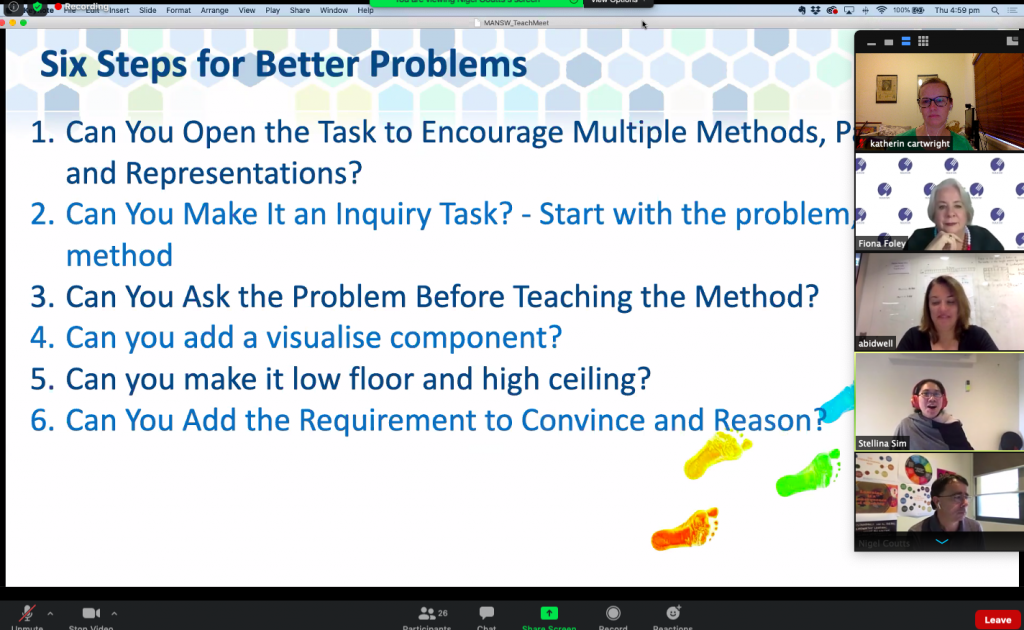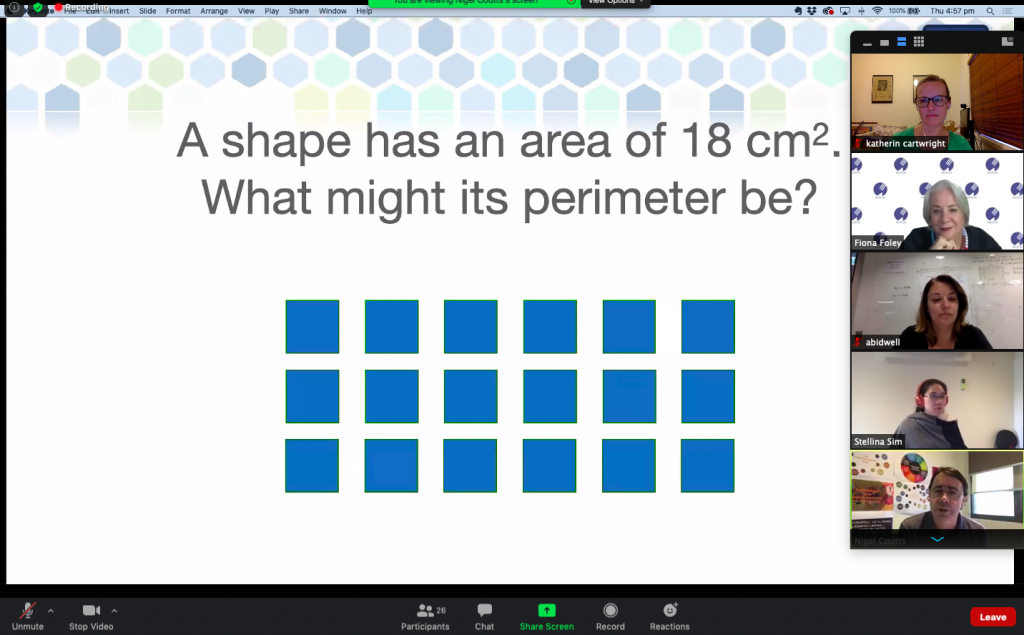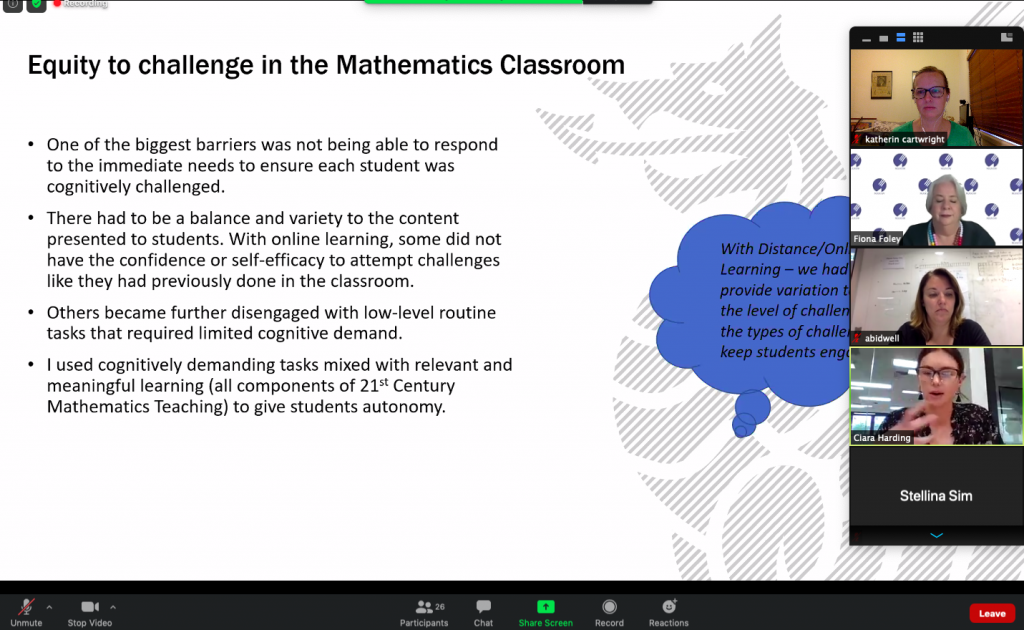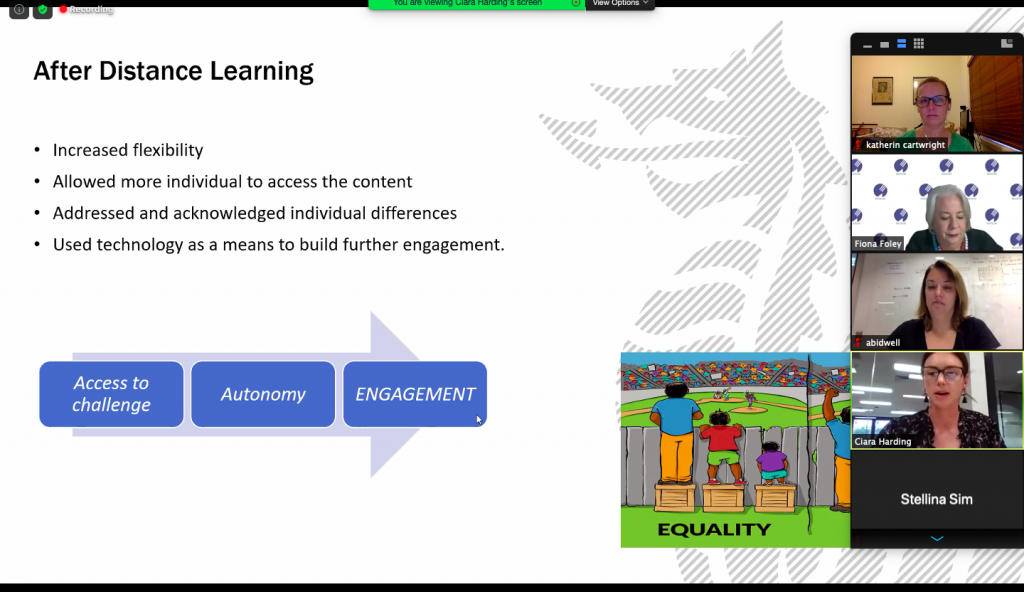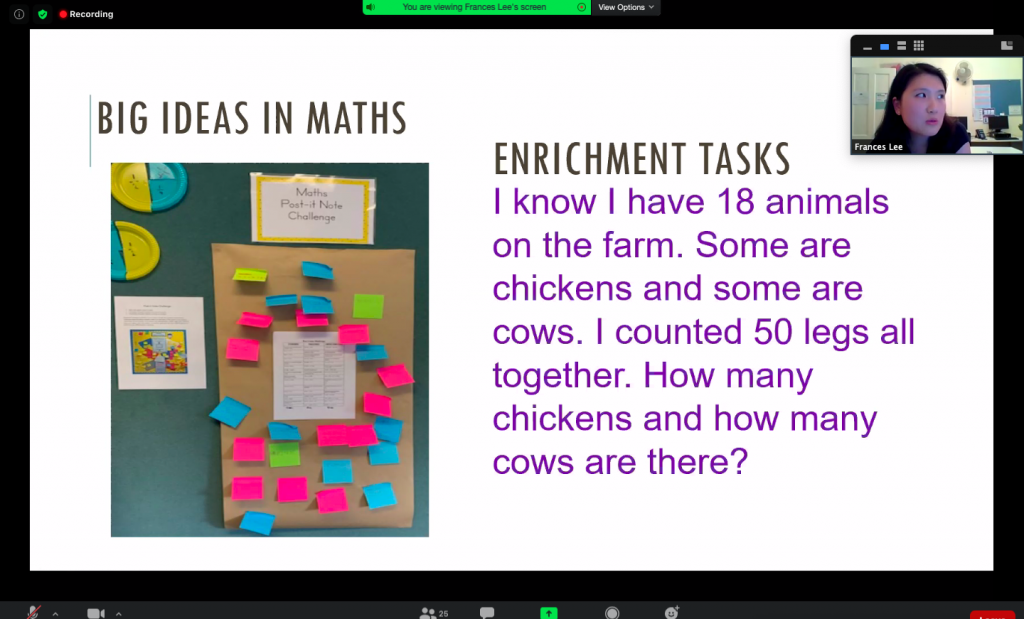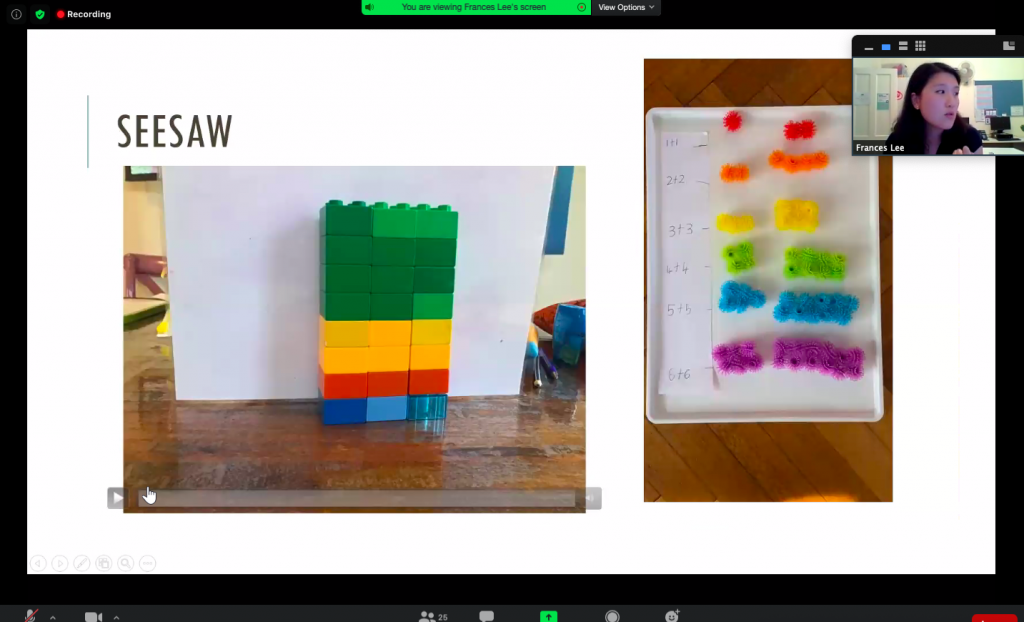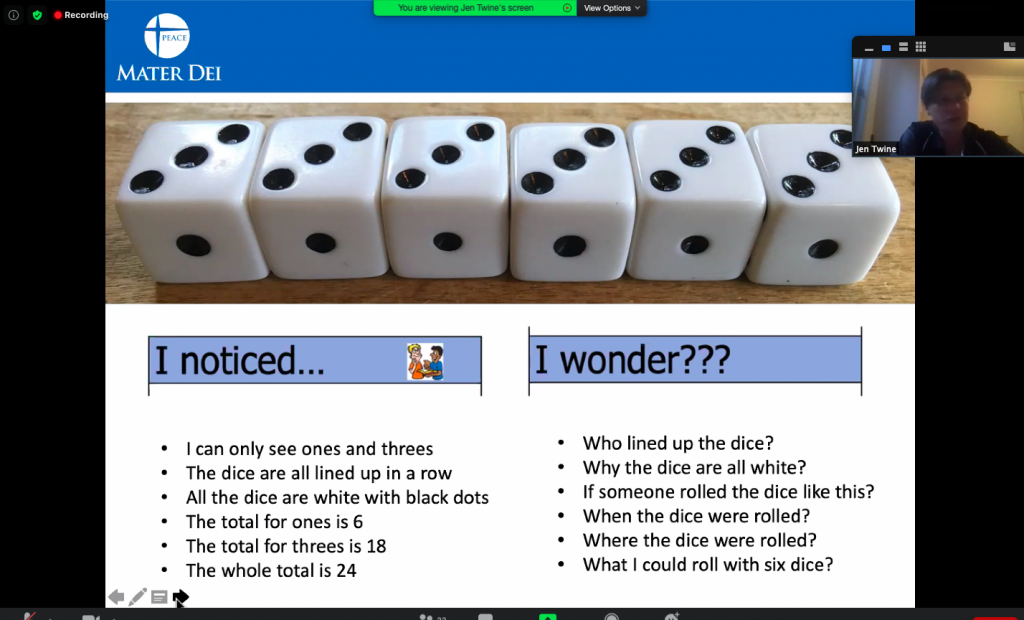MANSW’s (@MathsNSW) Primary and Middle years (PAM) committee hosted its first Teach Meet during September. The focus was on Successful ideas from online learning: What are you continuing? A number of teachers shared what they are doing in their classrooms and reflected on what new or different teaching strategies came from online learning. My blog shares a few of these ideas and resources that were discussed. A big thanks to Amber Bidwell (@AmberBidwell1), Fiona Foley (@Fiona_Foley) and Zina (@zina_mansw) for organising the event.
Big thanks to everyone who joined @MathsAssocNSW Teach meet tonight, presenting or listening @kylieelatham @stellina_sim @ncoutts @CiaraHarding @KrisWestcott1 @franceslee @jentwine @krisgraham122 & Edwine Tomlins. A huge 🙏🏻 to @Fiona_Foley & the Zina for all their background work pic.twitter.com/BQGRzFjmHB
— Amber Bidwell (@AmberBidwell1) September 17, 2020
Looking forward to presenting @MathsNSW Teach Meet on Thursday! So many great presenters sharing ideas. @AISNSWPrimary @Loreto_LK pic.twitter.com/ZzH2J2Ocks
— Kylie (@kylieelatham) September 15, 2020
Kylie Latham (@kylieelatham) from Loreto Kirribilli was first up to present and talked about a range of teaching strategies that she has continued from online learning. Many of Kylie’s ideas revolved around students being engaged in discourse around their own learning, feedback, and deep mathematical concepts. Some of Kylie’s suggestions included Compass Points from Thinking Routines, Sometimes – Always – Never, Exit Slips and the Frayer Chart. (Note: The links provided are ones I have located to assist teachers if you haven’t used these strategies before).
Nigel Coutts (@ncoutts) and Stellina Sim (@stellina_sim) who are located in Melbourne presented ideas and strategies to promote problem solving. I still recall how our old NSW 1989 blue and white syllabus talked about teaching by problem solving, for problem solving, and through problem solving – still so relevant today. Nigel talked about ‘slow looking’ and really encouraging students to notice and wonder (an idea that was also brought up later in the Teach Meet). I love this idea, so much so that I wrote a blog about slow teaching last year. Nigel and Stellina also shared some of the problem solving tasks they use, including the one imaged here and also Dan Finkel’s (@MathforLove) Prime Climb. They discussed the idea of starting with the problem, not the method. I agree with this statement in that we need to focus more on the actual mathematical concepts we want our students to understand and make connections between, not simply the strategies or procedures required.
Ciara Harding (@CiaraHarding) shared her classroom strategies for ensuring there was cognitive challenge in the classroom, both online and in person. When students were working online, Ciara said they needed a greater amount of variation and levels of challenge to cater for students’ differing needs and contexts. These differentiation techniques have also been brought into the classroom for face-to-face teaching. Ciara shared her wonderful idea of having the levels of challenge of tasks represented as chilli levels of ‘hotness’ for students to choose. They also used screen-o-matic (or screencastomatic) to record lesson hooks and videos for students while learning online to promote engagement.
Frances Lee (@franceslee) talked about presenting students with enrichment tasks that focused on the big ideas of mathematics and using the SeeSaw app for students to record their work from home to share with the class. The use of video to capture student learning and conceptual understanding is an example of ongoing assessment for learning.
Jen Twine (@jentwine) who teaches in a K-12 special education setting talked about how the use of Noticing and Wondering was giving her students a voice in mathematics and was leading to an increase in students’ willingness and ability to share mathematical thinking and understanding. The mathematical noticings and wondering questions students came up with for the dice image (pictured) show how this strategy is working in Jen’s school.
The event was a fantastic first Teach Meet run by MANSW. There were so many teachers willing and excited to share what they were doing in the classroom. Kris Westcott (@KrisWestcott1) also shared about the MANSW Cluster that she runs with Bridgeen Pritchard (@bridgeenpritch) in South Western Sydney. If you are interested in future Teach Meets or MANSW Clusters near you, check out all the details on the MANSW website.
